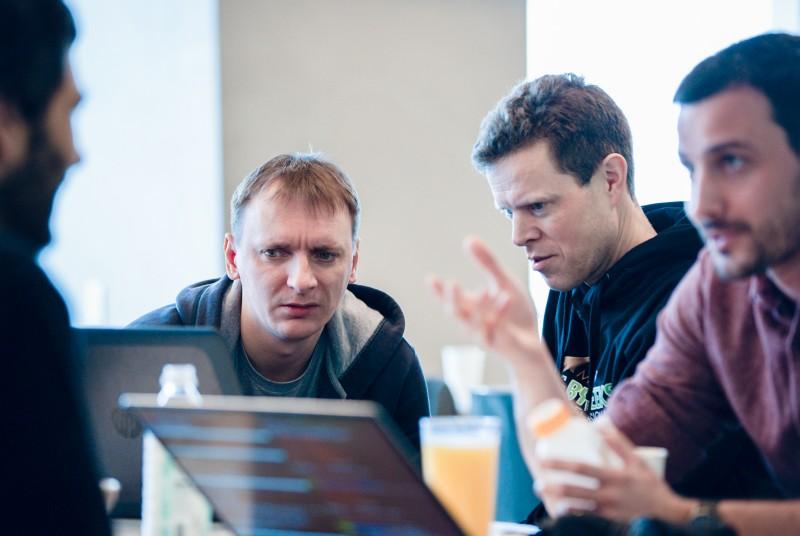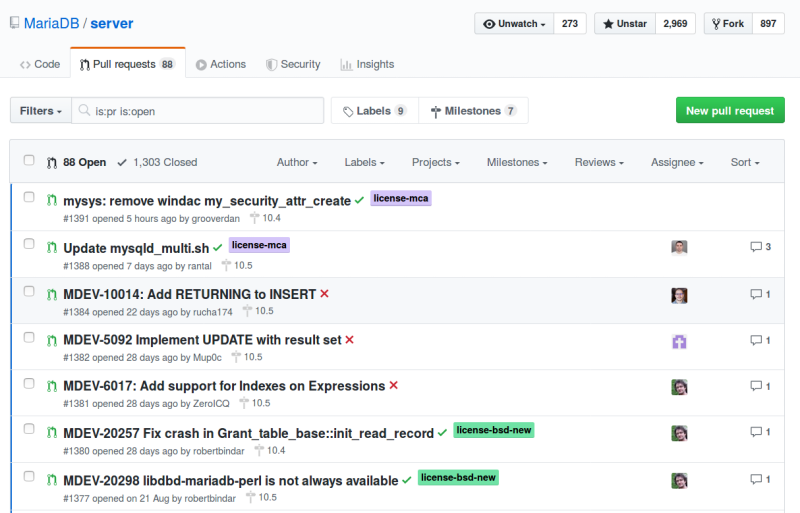Progress on Pull Request Processing

In his blog post “On Contributions, Pride and Cockiness ” in May, MariaDB Foundation CEO Kaj Arnö spoke of a renewed focus on MariaDB Server pull requests. Processing community pull requests in good time is a key part of our mission, but we’d been falling behind, and receiving justifiable criticism. At the time of that article, there were 167 open pull requests, with many open for far too long, and contributors were frustrated.
We set out two end goals:
- Reduce backlog of open pull requests
- Motivate contributors to make more contributions
There’s been no noticeable uptick in contributions since then, but we’ve made good progress in reducing the number of open pull requests. We’re now down to 88, the lowest in well over a year, and down from a peak of 187 in February 2019. Of the total 1391 pull requests submitted, we have closed 93.7%.

We also laid out two method’s for achieving the goal:
- Clearly set expectations of contributors
- Document, refine, improve the pull request handling process
There’s been some progress in this. We’re using CLAassistant to automate some of the work around signing contributor agreements. The contributor will now receive feedback immediately if they still need to sign, which removes some of the frustration of waiting a few days, and then getting nothing more substantial than a response asking for a CLA, as well as from the developers, who no longer have to do much to track this, and can immediately start work on a pull request rather than wait for a further response from the contributor.
Our pull request processes are a work-in-progress as we refine what works best.
But most of the improvement has simply come from a greater focus by our staff on pull requests, in recognition of how important this is to our goal of supporting continuity and open collaboration in the MariaDB ecosystem. The MariaDB Foundation employs relatively few staff and developers, so much of the work involves collaborating with core MariaDB developers to ensure the pull request’s smooth progress.
Please keep those pull requests coming, and letting us know where we can do better. We hope to continue to improve our responsiveness!